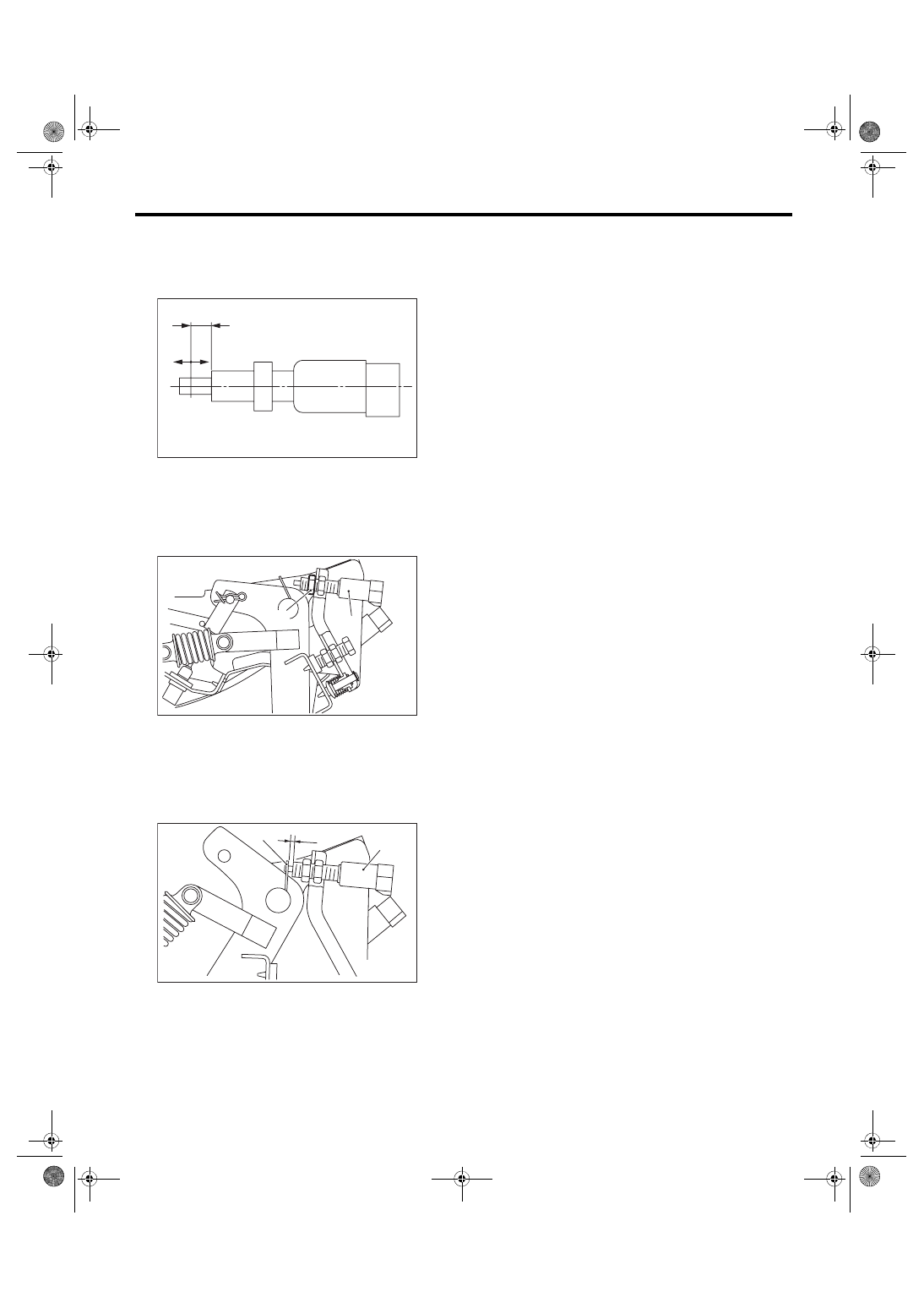Subaru Impreza 3 / Impreza WRX / Impreza WRX STI. Manual - part 465

CL-35
Clutch Switch
CLUTCH SYSTEM
(3) Check that the switch is turned on and off in
Dimension L.
Dimension L:
5 — 6.5 mm (0.2 — 0.26 in)
D: ADJUSTMENT
1) Loosen the lock nut of clutch start switch.
2) Fully depress the clutch pedal and hold it.
3) Adjust the gap of the clutch pedal plate and the
clutch switch to be 1.1 — 2.1 mm (0.04 — 0.08 in).
4) Tighten the lock nut.
Tightening torque:
8 N·m (0.8 kgf-m, 5.9 ft-lb)
(A) ON
(B) OFF
(A) Lock nut
(B) Clutch start switch
(A) Plate
(B) Clutch start switch
(C) 1.1 — 2.1 mm (0.04 — 0.08 in)
CL-00799
L
(B)
(A)
(A)
(B)
CL-00105
(A)
(B)
(C)
CL-00104